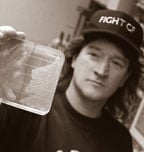Duke University has been selected as one of seven schools to be on the forefront of a United States effort to help eliminate desperate poverty around the world. Duke will receive a $10 million grant from the U.S. Agency for International Development (USAID) to form a development lab whose goal is to pinpoint and support progress in solutions to worldwide health problems in low- and middle-income nations.
Tags: USAID, Duke University, North Carolina, 2012, BioResearch Product Faire Event, Durham, NC, Duke, research scientist
One of the most prestigious scientific awards, the Presidential Early Career Award for Scientists and Engineers (PECASE), has been awarded to not one University of Michigan Ann Arbor researcher, but three! This award, started in 1996 by President Bill Clinton, was founded to recognize "the most meritorious scientists and engineers whose early accomplishments show the greatest promise for assuring America's preeminence in science and engineering and contributing to the awarding agencies' missions," as per a White House press release. These scientists are nominated by eleven different US government departments and agencies including the Departments of Energy and Health and Human Services, as well as the National Science Foundation.
Tags: University of Michigan, Midwest, Bioresearch, 2012, Michigan, scientific research, Ann Arbor, BioResearch Product Faire Event, Research Funding, MI, research scientists, research scientist, UM
 University of Cincinnati College of Medicine molecular geneticist Daniel Hassett (right) has made a name for himself as a determined researcher in the fight against cystic fibrosis (CF). He is also on the front line of bioscience research into creating "superbugs" that eat waste and generate energy, improving dramatically on the efficiency of traditional waste water treatment systems. In a radio interview on WVXU Cincinnati's Focus on Technology, commentator Ann Thompson describes the problem: the largest user of energy is wastewater treatment; the second largest user of water is energy production. If you can find a way to both clean water and generate electricity, you're in business.
University of Cincinnati College of Medicine molecular geneticist Daniel Hassett (right) has made a name for himself as a determined researcher in the fight against cystic fibrosis (CF). He is also on the front line of bioscience research into creating "superbugs" that eat waste and generate energy, improving dramatically on the efficiency of traditional waste water treatment systems. In a radio interview on WVXU Cincinnati's Focus on Technology, commentator Ann Thompson describes the problem: the largest user of energy is wastewater treatment; the second largest user of water is energy production. If you can find a way to both clean water and generate electricity, you're in business.
Tags: Bioscience research, Midwest, Ohio, biomedical research, University of Cincinnati, genetic engineering, molecular ecology research, BioResearch Product Faire Event, Cincinnati, BRPF, research scientist
Geneticists at the University of Arizona recently worked with 300 research scientists in 14 countries to crack the genetic code of tomatoes. The results of the study are expected to be used to lessen costs of tomato production and improve efforts at making tomatoes resistant to drought and pests. Founded in 2003 in Washington, the Tomato Genome Consortium includes scientists from Argentina, Belgium, China, France, Germany, India, Israel, Italy, Japan, Korea, the Netherlands, the United Kingdom, Spain and the United States. The results of the study were published as a cover story in the May 31 issue of the journal Nature.

